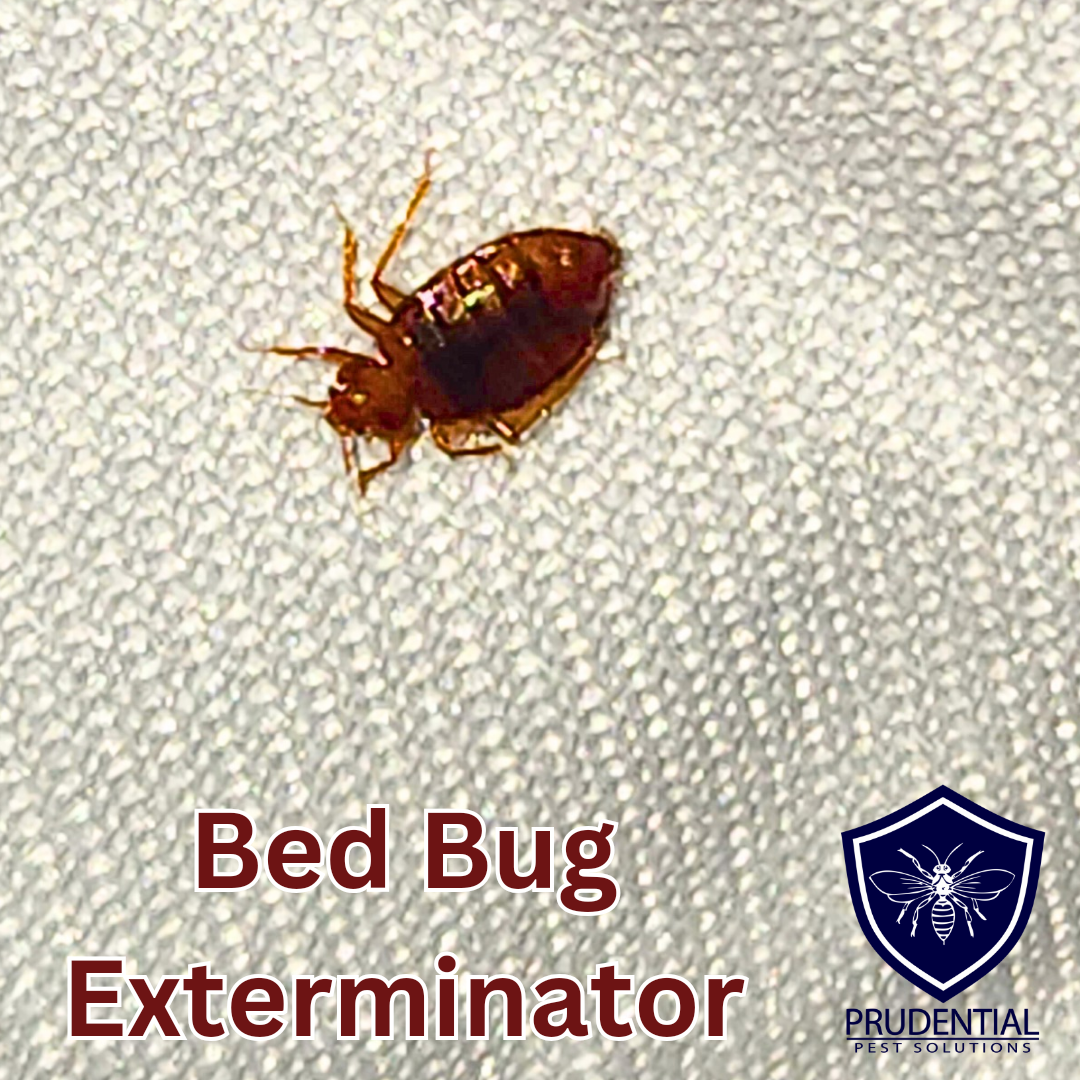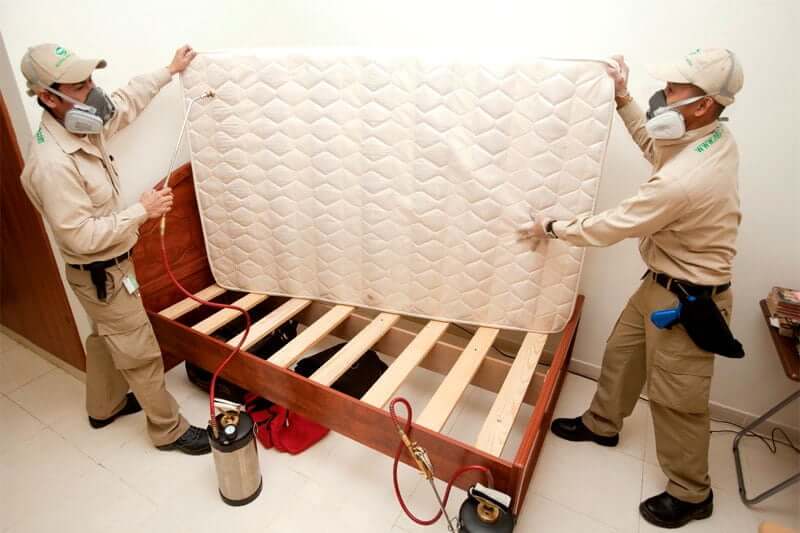Trusted Bed Bug Exterminator for Fast and Safe Elimination
Get Enlightened Regarding the Kinds Of Parasite Control Approaches and Their Benefits for Homeowners
Recognizing the various insect control techniques readily available to homeowners is vital for reliable parasite management. Property owners who are knowledgeable can make critical selections that not only address pest issues but additionally boost the overall quality of their living atmosphere.
Chemical Insect Control Methods
Chemical insect control methods are a critical component of integrated bug management approaches for home owners seeking efficient options to pest invasions. These techniques include the application of chemical compounds developed to eliminate or discourage pests that threaten personal effects, health and wellness, and comfort. Common chemicals used consist of pesticides, rodenticides, fungicides, and herbicides, each customized to target certain insects.
The primary benefit of chemical insect control is its rapid performance; numerous formulations give instant results, reducing pest populaces considerably in a short time. Furthermore, advancements in chemical formulations have actually led to items that are much more eco-friendly and have reduced toxicity degrees for non-target organisms when used correctly.

Organic Insect Control Techniques
Natural parasite control techniques have actually acquired prestige as property owners seek more secure and a lot more lasting options to traditional chemical techniques. Organic insect control strategies utilize natural killers, bloodsuckers, or pathogens to take care of pest populations successfully. This method is not only eco-friendly but additionally decreases the risk of harm to non-target types, consisting of valuable insects and wildlife.
Among one of the most common biological control techniques entails presenting all-natural predators into the atmosphere. For instance, ladybugs can be made use of to regulate aphid populations, while nematodes target soil-dwelling insects like grubs. In addition, parasitoids-- microorganisms that live on or within a host-- can be employed to control particular insect types by laying eggs inside them, eventually causing their death.
An additional strategy is the usage of biopesticides, which are stemmed from all-natural products such as germs, minerals, or plants (bed bug exterminator). These products can effectively target pests while posing minimal threat to family pets and people. In general, biological pest control strategies give home owners with an effective ways of pest monitoring that straightens with environmental principles, advertising a healthier living environment while lowering dependence on synthetic chemicals
Mechanical Parasite Control Methods
Mechanical insect control strategies incorporate a range of methods that physically stop or remove insects without making use of chemicals. These strategies are particularly beneficial for home owners seeking eco friendly alternatives while guaranteeing the safety of their space.
One common technique is using barriers, such as nets, displays, and catches, which avoid parasites from entering homes or certain locations. As an example, setting up home window screens can successfully maintain insects out, while utilizing physical obstacles around yards can deter larger bugs like bunnies or deer. Additionally, mechanical catches developed for rodents can catch and get rid of these parasites without the need for harmful compounds.
One more reliable approach entails making use of vacuums and brooms to remove pests directly from surfaces. Regular cleaning and maintenance can significantly decrease insect populations by eliminating food sources and hiding places. Using tools like ultrasonic bug repellents can prevent various pests through audio waves that are undesirable to them however inaudible to human beings.
Social Insect Control Practices
Cultural parasite control practices concentrate on changing the atmosphere and management strategies to produce conditions that are much less for pest invasions. These practices you could look here are basic in preserving a balanced ecological community and decreasing the dependence on chemical interventions. By modifying agricultural techniques, house owners can efficiently deter insects while advertising plant health and wellness.
One common strategy includes plant rotation, which interferes with the life cycles of parasites by altering the kinds of plants grown in a details area (bed bug exterminator). This not just reduces pest populaces but likewise boosts soil wellness. Additionally, intercropping-- growing varied crops in distance-- can perplex insects and lower their ability to find their recommended host plants
Water management is one more critical element of social practices. Correct watering strategies can prevent standing water, which functions as a breeding place for insects and other insects. In addition, maintaining cleanliness in and around the home, such as regularly eliminating particles and food waste, can dramatically reduce insect attraction.
Including these social techniques into a thorough insect management strategy permits home owners to develop an atmosphere that naturally hinders parasites, therefore boosting the efficiency of other control approaches while promoting lasting horticulture and landscape design.

Integrated Bug Management Approaches
Integrated Parasite Management (IPM) represents an all natural strategy that combines different methods to properly manage insect populations while lessening ecological influence. This technique incorporates biological, cultural, physical, and chemical practices to achieve sustainable insect control. By evaluating pest populations and their natural opponents, IPM highlights tracking and determining bugs prior to carrying out control procedures.
Among the core principles of IPM is making use of thresholds, which establish the level of pest activity that warrants treatment. This makes certain that therapies are used only when required, decreasing the reliance on chemical pesticides. Organic control approaches, such as presenting natural predators or bloodsuckers, operate in combination with cultural practices like plant turning and habitat manipulation to disrupt pest life process.
Moreover, IPM motivates making use of least-toxic chemical alternatives when treatment is required, prioritizing items that present minimal risk to non-target microorganisms and the atmosphere. For homeowners, taking on IPM comes close to not only boosts the effectiveness of pest monitoring however additionally advertises a healthier living setting, fostering biodiversity and lowering chemical direct exposure. Ultimately, IPM encourages property owners to make enlightened decisions that stabilize insect control with this ecological obligation.
Conclusion
In final thought, comprehending the different bug control approaches encourages homeowners to make informed decisions regarding pest management. Each method-- chemical, biological, mechanical, cultural, and integrated pest management-- offers distinct advantages that provide to various demands and choices. By choosing suitable techniques, property owners can efficiently handle insect populations while decreasing wellness threats and environmental impacts. This informed strategy adds to a much healthier living environment, promoting total wellness for pets and family members alike.
Understanding the numerous insect control approaches offered to homeowners is crucial for efficient parasite administration.Chemical parasite control methods are a critical element of incorporated insect monitoring techniques for house owners seeking efficient remedies to pest infestations. Generally, organic insect control methods give property owners with a reliable ways of bug monitoring that aligns with environmental concepts, advertising a healthier living environment while minimizing dependence on artificial chemicals.
Cultural pest control methods concentrate on pest control methods changing the setting and management techniques to create conditions that are less favorable to pest invasions.In verdict, recognizing the numerous pest control methods empowers property owners to make educated decisions concerning pest administration.